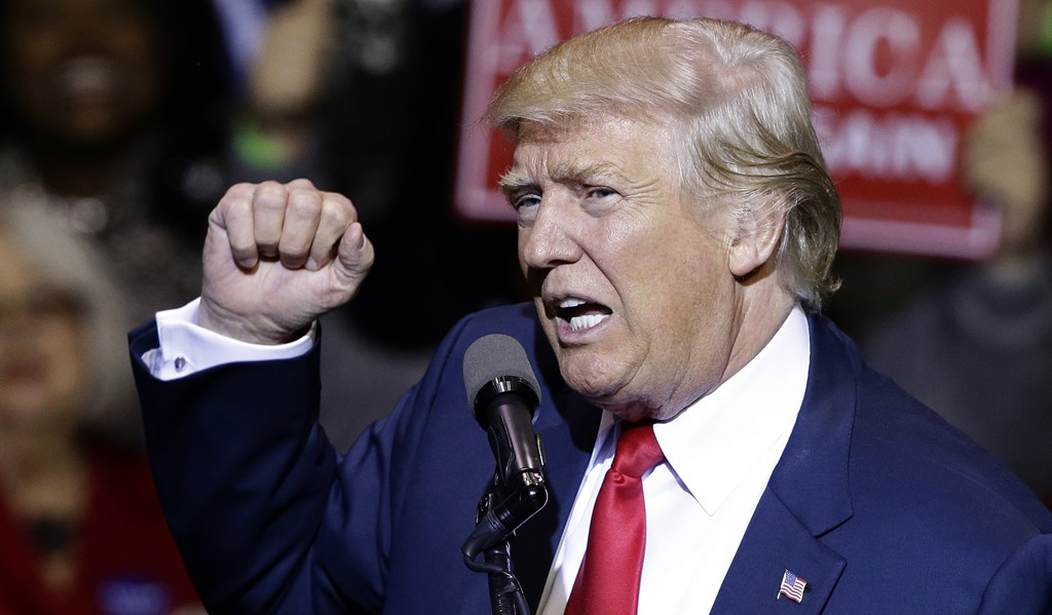Donald Trump promised to “drain the swamp” when he reached the White House, but Washington’s swamp creatures are putting up a heck of a fight. The people who inhabit the permanent government are doing their best to resist and obstruct the kind of change that Trump promised.
A good example is the furious reaction to the news that Trump accepted a 10-minute courtesy call from the president of Taiwan. As if on cue, Washington-based pundits and so-called experts erupted with criticism of Trump for taking the call, and some even warned that it could provoke war with China.
Taiwan is a free and independent nation of 24 million Chinese people who live on an island off the Chinese coast. Ever since Jimmy Carter, U.S. presidents have refused to extend diplomatic recognition to Taiwan, whose official name is the Republic of China, preferring to do business with the Communist People’s Republic on the mainland.
As we’ve learned to expect, Trump responded to his critics on Twitter: “Did China ask us if it was OK to devalue their currency (making it hard for our companies to compete), heavily tax our products going into their country (the U.S. doesn’t tax them) or to build a massive military complex in the middle of the South China Sea? I don’t think so!”
The uproar inside the beltway over Taiwan’s telephone call is a skirmish in the coming battle over global trade. No matter which party wins the election, Washington is still the place where foreign lobbyists can gain access to the lucrative American market through one-sided trade deals.
Recommended
The Taiwanese telephone call came right after the “Carrier coup” -- the deal brokered by the President- and Vice President-elect to save nearly 1,000 manufacturing jobs from moving to Mexico. Trump astounded even his critics by redeeming a campaign promise so quickly, even before he’s inaugurated.
The Republican primary contest was in full swing last February when Carrier, the famous maker of air conditioners, announced it would close a large factory in Indianapolis and relocate its production to Monterrey, Mexico. That decision would have allowed the company to eliminate 1,400 jobs where Americans earn over $20 an hour and replace them with Mexicans earning $3 an hour.
A cell phone video captured a hapless Carrier manager giving the bad news to a roomful of angry workers who were soon to be laid off. The manager pleaded that “this is strictly a business decision” the company made in order to “stay competitive and protect the business for the long term.”
Trump took up the cause of the Carrier workers, who perfectly illustrated his campaign speeches about the costs of bad trade deals, especially NAFTA. Trump rode the issue to win Indiana, first with a decisive victory over Ted Cruz in the May 3 primary, before cruising to a 19-point victory over Hillary in the general election.
As usual, Trump celebrated on Twitter: “The U.S. is going to substantially reduce taxes and regulations on businesses, but any business that leaves our country for another country, fires its employees, builds a new factory or plant in the other country, and then thinks it will sell its product back into the U.S. without retribution or consequence, is WRONG!”
Although the Carrier deal involved much more carrot than stick, Trump’s tweet repeated his earlier warnings to companies pondering a move offshore: “There will be a tax on our soon to be strong border of 35% for these companies wanting to sell their product, cars, A.C. units etc., back across the border. This tax will make leaving financially difficult, but these companies are able to move between all 50 states, with no tax or tariff being charged.”
In the final installment of his 6-part tweet, Trump concluded: “Please be forewarned prior to making a very expensive mistake! THE UNITED STATES IS OPEN FOR BUSINESS.”
In a single brilliant stroke, Trump has already begun to reward the votes of his supporters while disarming the fears of his opponents. A new poll from Politico/Morning Consult finds that 60 percent of voters have a more favorable view of Donald Trump as a result of Carrier’s decision to keep some of its manufacturing jobs in Indiana, while only 9 percent view him less favorably.
Before the election, the same people who assured us that Trump could not win, also predicted that his election would lead to a stock market crash and a collapse of world trade. One month after he won, business conditions have already improved so much that people are calling it the “Trump bump” in the economy.
Trump’s decisive handling of the Carrier crisis recalls the way President Reagan, in his first weeks in office, dealt with the illegal strike by air traffic controllers. George Shultz said that was Reagan’s most important foreign policy decision because it showed America’s enemies that our president meant what he said and his words were to be taken seriously.
John and Andy Schlafly are sons of Phyllis Schlafly (1924-2016) whose 27th book, The Conservative Case for Trump, was published posthumously on September 6.
























Join the conversation as a VIP Member